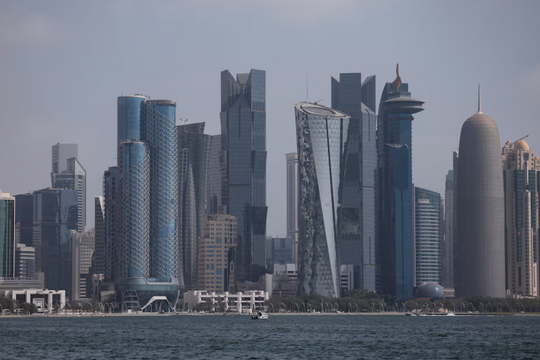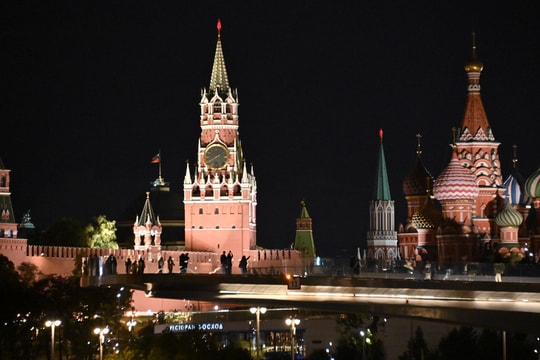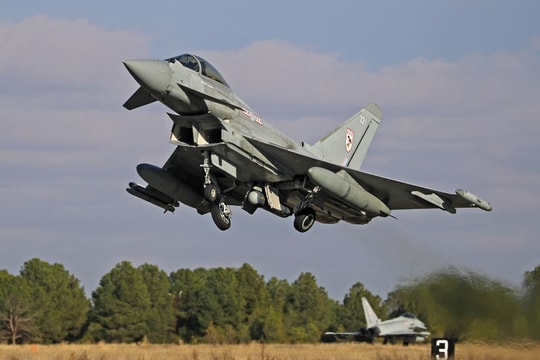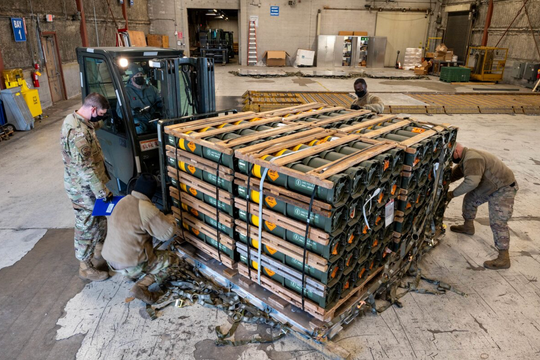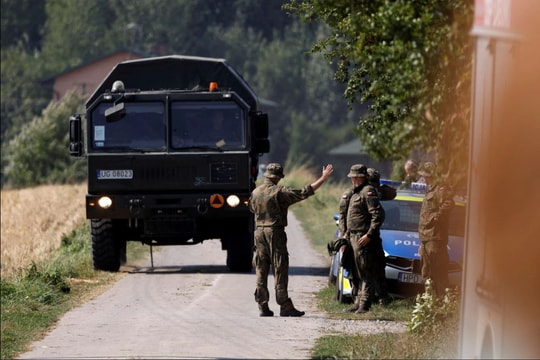NATO expands to the North, how will the European security structure change?
Although the outcome of Russia's military campaign in Ukraine remains unclear, it has certainly altered the European security order in several important ways.
Russia’s military campaign in Ukraine caught many European countries by surprise. Most European leaders had downplayed earlier US warnings of an imminent attack, arguing that diplomacy could lead to more stable relations. The campaign has changed everything.
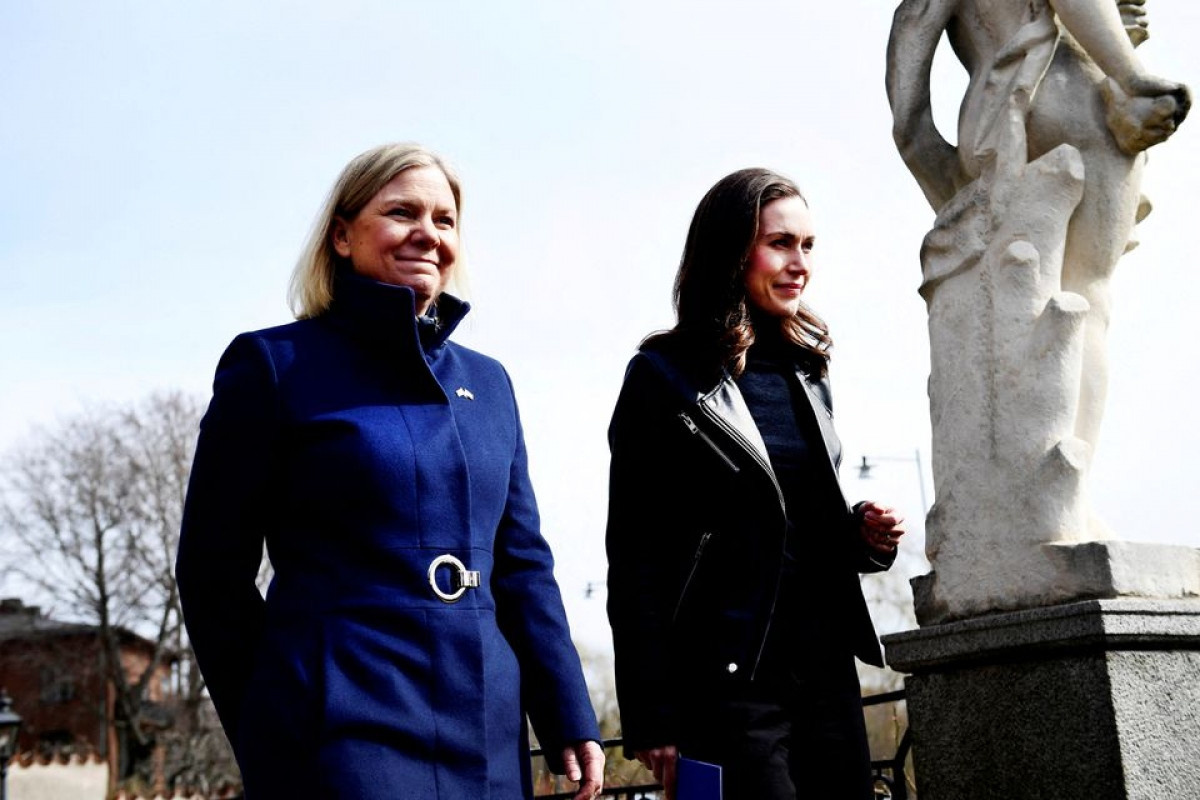 |
| Swedish Prime Minister Magdalena Andersson and Finnish Prime Minister Sanna Marin before their meeting in Stockholm on April 13. Photo: Reuters |
Russia’s campaign in Ukraine has had two effects. First, defense spending in European countries has increased. After years of stagnation, mostNATO membersin Europe are surprisingly committed to spending at least 2% of GDP on defense. Germany, Europe's largest economy, is also increasing defense spending by 0.5% of GDP in 2022 alone.
Second, NATO will be strengthened. In addition to increasing its military presence in member states bordering Russia, the alliance is expected to add new members, possibly Finland and Sweden. Both have strengthened their ties with NATO since Russia annexed Crimea in 2014 and the conflict in eastern Ukraine broke out. Both Helsinki and Stockholm are now making significant moves toward formal membership.
Changing stance due to Russia-Ukraine conflict
After Russia's military campaign in Ukraine, Finland and Sweden no longer saw joining NATO as a strategic option, but as a necessity for survival.
Finnish newspaper Iltalehti reported on April 25 that the Swedish government has expressed its desire to apply to join NATO with Finland during week 20, May 16-22.
Swedish newspaper Expressen also confirmed this information. Media from both countries said that Finnish President Sauli Niinisto will visit Stockholm, Sweden on May 17-18. After that, the leaders of the two countries will officially announce plans to join the alliance.
According to Expressen, Finland had previously expressed its wish to the Swedish government that the two countries would jointly apply to join NATO.
Finnish Prime Minister Sanna Marin said at a joint press conference in Stockholm with her Swedish counterpart Magdalena Andersson on April 13 that “we must be prepared for any action from Russia.” She said the option of joining NATO had to be carefully analyzed, but everything changed when Russia launched its military campaign in Ukraine.
In reality, Sweden and Finland becoming full members of NATO would be more of an evolution than a breakthrough. Both countries are already NATO partners, receiving security briefings and participating in joint exercises with the military alliance. Both also allow NATO access to their territory in times of emergency.
However, full membership would give Stockholm and Helsinki protection under NATO's Article 5, which states that an attack on one member is an attack on all.
The European security architecture will change significantly.
The entry of two Nordic countries into NATO, unthinkable just four months ago, would be the biggest change to European security in decades.
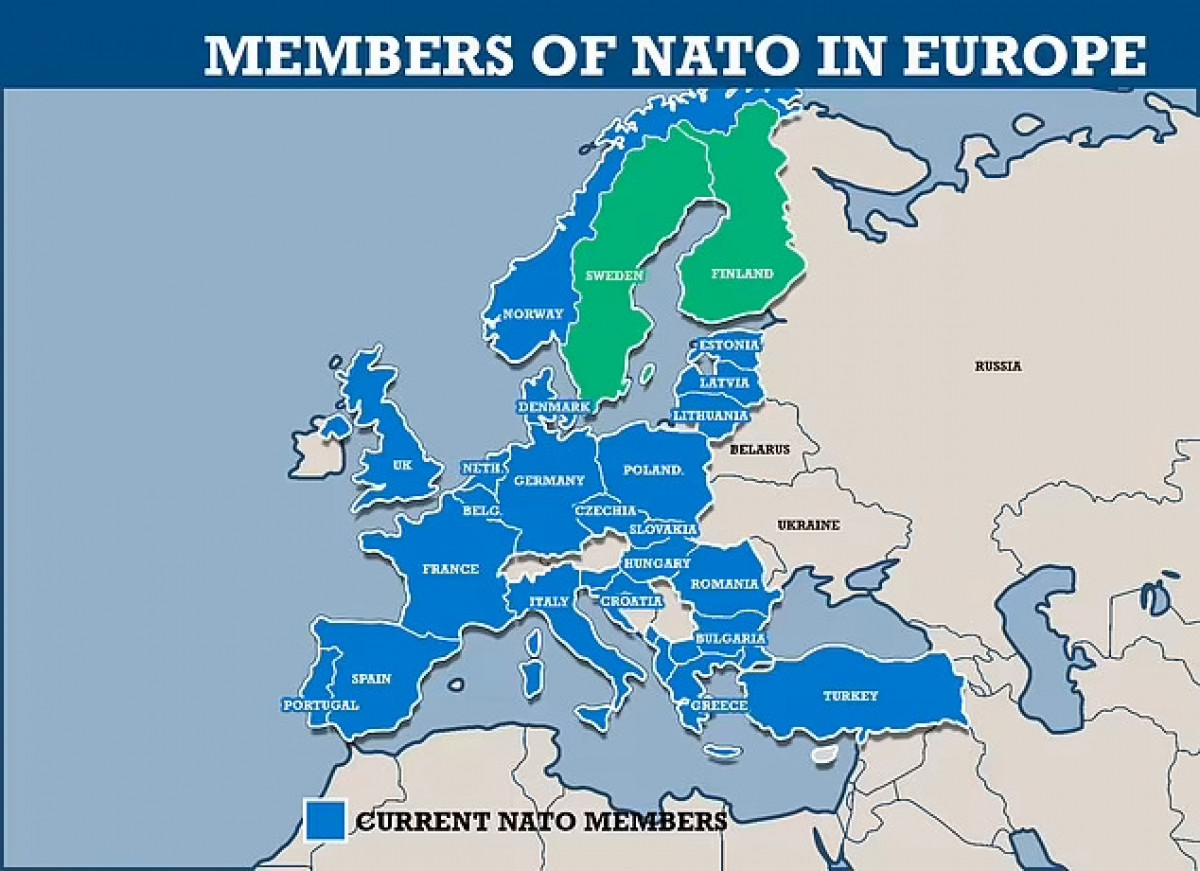 |
| NATO member states (blue) in Europe. Photo: Daily Mail |
Former Swedish Prime Minister Carl Bidlt said that the European security architecture would change in two important ways. First, Northern Europe would be able to coordinate significant defense forces across the region. Sweden and Finland would also provide NATO with important new capabilities, as demonstrated by the regular air force exercises it holds with Norway. Furthermore, NATO would have greater ability to control the Baltic Sea, thereby assisting in the defense of Estonia, Latvia, and Lithuania.
Second, the membership of Sweden and Finland in NATO will strengthen the European pillar of NATO. Both countries support the development of the EU’s defence and security aspects and the strengthening of transatlantic relations, including the important security relationship with the UK. While NATO will still play a major role in territorial defence, the EU – with its broader policies – will become an increasingly important security alliance. The coordination between the two sides will deepen.
Denmark is set to hold a referendum on June 1 on lifting restrictions on its participation in EU security and defence policy. These restrictions are a relic of disputes dating back to the early 1990s and Denmark – along with Sweden – has pledged to increase defence spending to 2% of GDP.
Taken together, the above factors would significantly enhance the defense potential of the entire Nordic-Baltic region.
On the other hand, former Swedish Prime Minister Carl Bidlt also said that Northern Europe needs to be careful not to provoke Russia, which has important resources and economic centers near both Sweden and Finland. St. Petersburg is Russia's second largest city and a major industrial zone; and the Kola Peninsula is home to Russian submarine bases and other facilities, as well as the world's largest concentration of nuclear weapons.
In addition, Finland and Sweden's accession to NATO could also make other countries that are already members of the EU but not yet members of this military alliance think again.
Regardless of the actual outcome, NATO expansion would be seen by Russia as a provocation. Deputy Chairman of the Russian Security Council Dmitry Medvedev warned on April 14 that if Sweden and Finland joined NATO, Moscow would strengthen its defense capabilities, including deploying nuclear weapons in the Baltic.
Russia’s warning should be taken seriously, although it is not new. The Russian exclave of Kaliningrad is believed to have deployed Iskander missiles, capable of carrying both nuclear and conventional warheads, since at least 2018.

